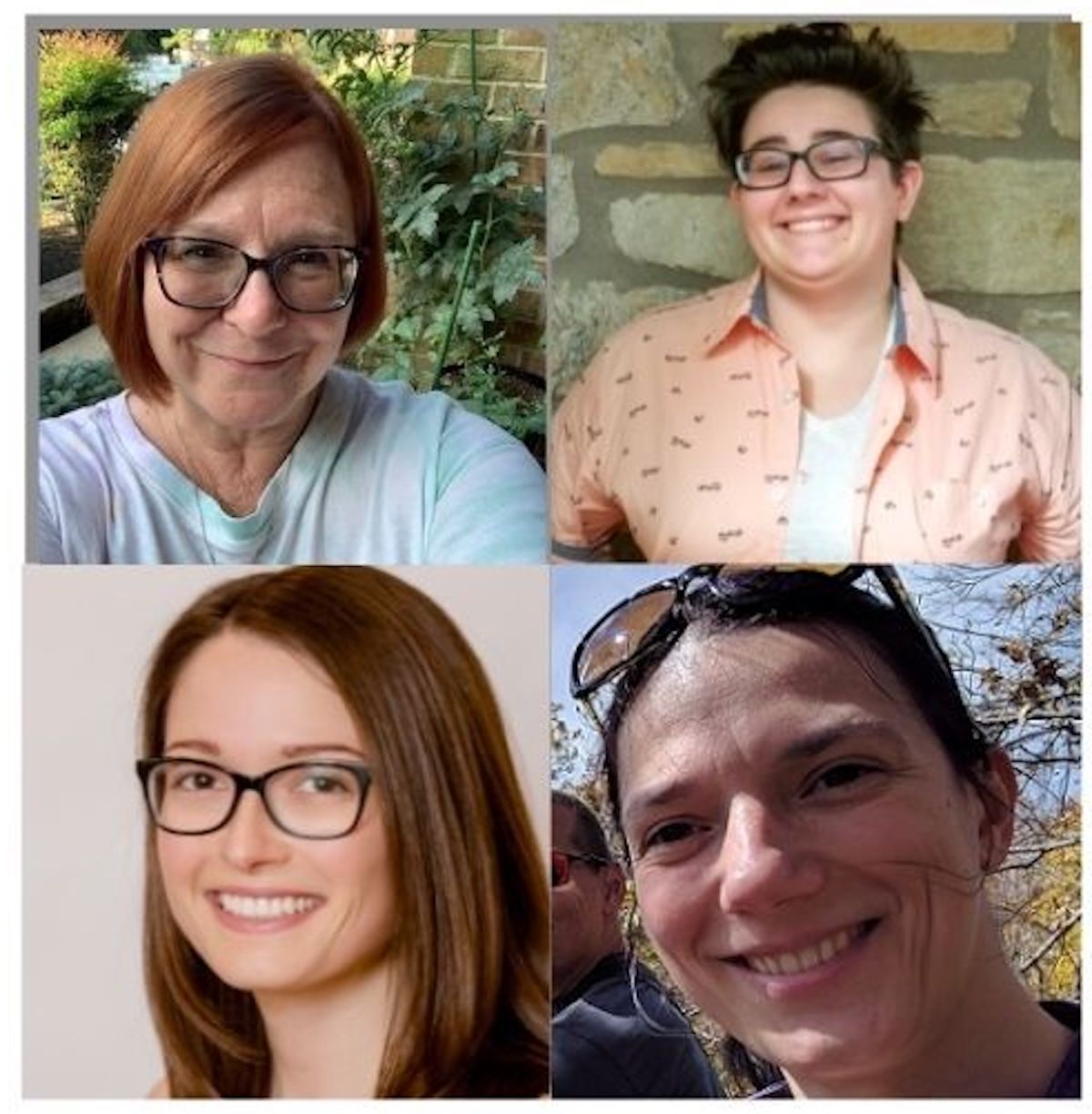Where do you find professional community? During the pandemic, it’s probably online.
Over the past 18 months, we’ve repeatedly heard from technologists that online communities are stronger and more essential than ever. In Technical.ly’s most recent AMA interview on our public Slack, four women who run technical meetup groups and professional organizations in Delaware and Philly gathered to chat about their respective groups. All four work in tech now, but started their studies or careers on a different path.
As women working throughout the pandemic, their respective communities have proven to be spaces to breathe and continue to learn, even when lives feels unsteady.
“Having that outlet to connect with other people who are having the same or similar experiences allows us to feel less isolated and feel bolder and take more risks,” said Gloria Bell, cofounder of national org and conference, Women in Tech Summit.
Alice Walsh and Karla Fettich are organizers and board members of R-Ladies Philly, a meetup that promotes gender diversity in the R and data science community. They currently work as the VP of translational research at biotech company Pathos and the head of algorithm development at Orchestrall, respectively. But neither started in tech — not exactly. Walsh has degrees in engineering and describes herself now as “more a scientist that can code than a software engineer that works in science.”
“There is a huge data science community in Philadelphia and a lot of people transition into the field from something else,” she said. “A lot of people are drawn in by the opportunities (good jobs!) but also because data work is also very rewarding and creative.”
Fettich said she “fell” into data from an academic background after realizing she enjoyed analyzing it. Bosses started to notice and throw her into projects they’d hope she’d figure out.
“And I’d usually say, ‘I’ll give it a shot!’ even if if I didn’t know where to begin,” Fettich said. “Plenty of googling later, and I’d get things to work.”
Meetups, and particularly R-Ladies, gave her the ability to add experience that she wasn’t getting in the academic world, especially when she didn’t know how to move out or pivot, she said. It created the type of opportunities she wished she had when she was starting her career.
Emily Zbyszynski, the program manager at youth-focused esports startup Futures First Gaming (FFG) in Wilmington, found one of the more roundabout ways into tech: Her formal education is in English literature, and she got into gaming when friends started a club at The College of New Jersey. They needed someone who could do the club’s PR and communications, she said.
“I started out with that, then took every opportunity to absorb as much esports administration knowledge as possible,” Zbyszynski said.

Now, she develops curriculum for FFG’s STEM.org accredited programs, plans events and does community management. She also teaches at TCNJ, and will be teaching a course called “Gaming as Literature” this fall. Zbyszynski said at FFG, their work is has to be deeply rooted in community — it wouldn’t be able to operate without a good understanding of the people they’re reaching out to.
“Communities exist to instill a sense of belonging. When you see yourself reflected in others, particularly those who are successful in their field, it feels like you have that opportunity to succeed,” Zbyszynski said.
Zbyszynski feels lucky to work in a field and be building a community that can keep going in-person or virtually. The gaming industry wasn’t particularly hurt by the lockdowns, and she’s spent most nights online chatting or gaming with friends long distance.
“To be honest, I’ve probably reached out to more people virtually than I would have in-person,” she said. “That being said, it’s been nearly two years since I’ve run a convention or in-person expo. Those are muscles that I’m going to have to retrain.”
Bell had always worked in a tech-adjacent field, and growing WITS and adjacent tech training nonprofit TechGirlz has been at the center of her professional mission for a long time. For the first five years after cofounding WITS, Bell worked for the org part-time. When the summit expanded beyond Philadelphia into a national conference, the leadership team decided to raise enough money to pay Bell a salary and run things full-time, she said.
There were some scary moments, as with any major career pivot, she said; leaving a 20-year career, cashing in her 401(k) and “accepting that I might never get to retire,” were among them. But she’d loved tech since the Army sent her dad to get his masters degree in data processing when she was a kid.
“But I never had the role models or the career vision to follow it. So my college path went one way and my actual career path went another. It was not until I was helping a friend run his company that I was led back to my first love — tech,” Bell said. “Ever since I took that leap, there have been even more pivots, but each one has taken me down the most wonderful, exciting and frightening paths to the work I do now. Work that I love and where I get to change lives every day. Work with girls like I was. I get to give them the chance I never had. It is pretty awesome.”
###
You can join or just follow along with conversations like this one in the #ama channel on our public Slack. Coming on Thursday, Sept. 2, Technical.ly reporters will lead a discussion with coworking space managers from across the mid-Atlantic.
Join the Technical.ly Slack






